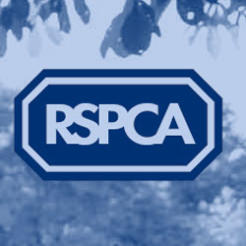The RSPCA has played down reports that its deputy chairman has warned that the charity could be gone in ten years because of a lack of strategy around its campaigning, saying Paul Draycott was imagining a “worst-case scenario” as part of a trustee meeting.
Draycott’s comments are reported in the Times and Daily Telegraph newspapers, local press and newswires, taken from a leaked six-page internal discussion paper on the RSPCA that he wrote. The document has also been leaked online by James Barrington, an animal welfare blogger.
But, in a statement the RSPCA said the report was merely a “confidential, worst-case scenario document intended to prompt discussion at a trustees meeting”.
It added that Draycott's report contained a number of factual inaccuracies which have been acknowledged by Draycott.
The chair of trustees, Mike Tomlinson said: "The trustees place their full support behind the RSPCA’s chief executive, management and all our people who do such outstanding work for the animals.”
An RSPCA spokeswoman added: “In this worst-case scenario document Mr Draycott was speculating about the possibility about the lack of a coherent strategy at the RSPCA. The truth as we explained to all the media is that the RSPCA and trustees approved and signed off our ten-year strategy back in June, which was openly discussed and agreed by our supporters at our AGM in June.”
The Times report stated that Draycott said he was concerned about the lack of strategy around the RSPCA’s campaigning. “The society has become more vocal in campaigning, especially in the area of fox-hunting and the badger cull,” he wrote. “Some of us have become concerned at the lack of a coherent strategy to manage this change in increased campaigning visibility.”
The Times also reported that Draycott fears commercial sponsorship could be in danger. “There is a potential risk, which does not seem to have been identified or addressed, that if the society is seen to become too ‘political’, that potential will be restricted, as new and existing partners may become concerned that their own brand could be affected negatively by being associated with us.”
He is also worried about the effect on donations, stating that most of the RSPCA's income comes from legacies of people who read newspapers: "We do not yet know what effect the current negative publicity is having on these individuals. Even if only a small percentage accept these stories being printed, there is serious potential for legacies to be affected for a number of years to come."
Draycott also wrote that the charity could be becoming isolated. “Whilst we should have no qualms about making potential enemies within fox-hunting and pro-badger cull groups, we must ensure we maintain, and even increase the support of allies. We are having to fight off the Charity Commission as well as the usual suspects. Where is the support of other animal charities?
“The League Against Cruel Sports should be supporting us vocally and we should be working with and encouraging them. We appear to have fallen out with them.”
Draycott also expresses concern about an upcoming meeting with the Charity Commission. “The fact that they have requested a meeting with the trustees is worrying. It is quite clear that the stakes have now been raised.”
He also fears that the pro-hunting movement is more powerful: “The Countryside Alliance clearly has very powerful and influential friends and support, and they appear to be far more effective at causing serious damage to our reputation than we are theirs.
“We need to seriously up our game to counter this non-stop campaign vilifying the RSPCA and reinforcing the suggestion that we are now more interested in politics than animal welfare. Where are our supposed friends and allies? Why do we not have more or even just any support from our fellow animal charities?”
Draycott also wrote that RSPCA staff have had not pay rise for five years, and warned it could lead to their best staff leaving.









